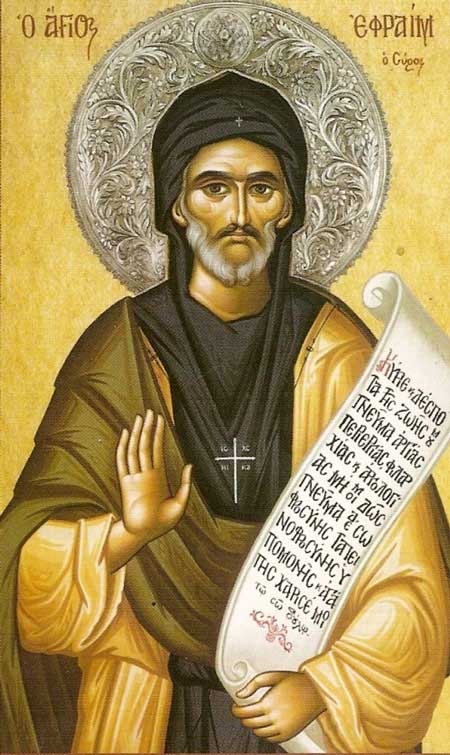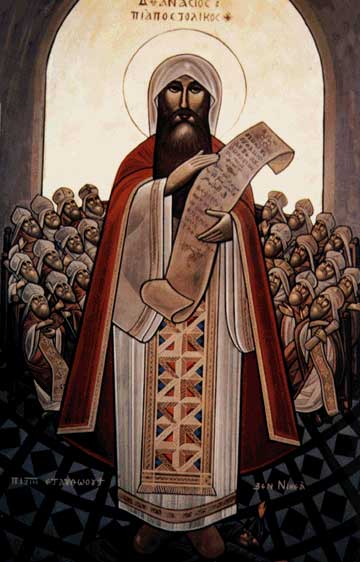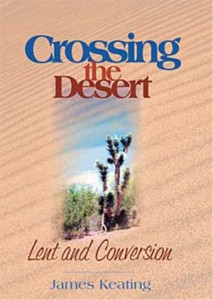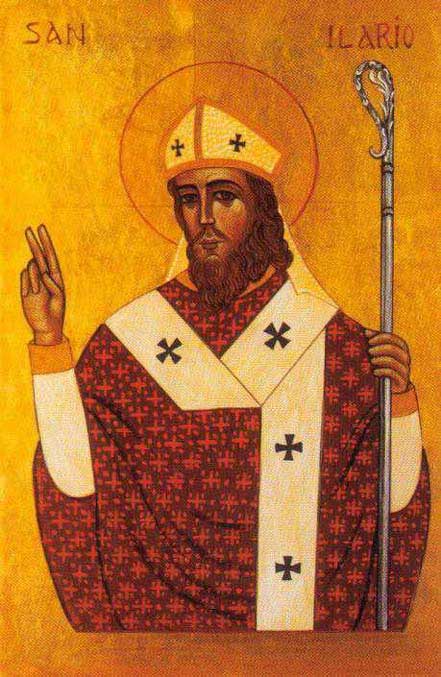Podcast: Play in new window | Download (Duration: 29:00 — 20.0MB) | Embed
Subscribe: Apple Podcasts | Spotify | Amazon Music | Android | Pandora | iHeartRadio | JioSaavn | Podchaser | Gaana | Podcast Index | Email | TuneIn | Deezer | Anghami | RSS | More

St. Ephrem of Syria – The Doctors of the Church: The Charism of Wisdom with Dr. Matthew Bunson
- Born: 306 AD, Nisibis, Turkey
- Died: June 9, 373 AD, Edessa, Turkey
Dr. Matthew Bunson and Kris McGregor discuss the life and contributions of St. Ephraim, who was declared a Doctor of the Church in 1920 by Pope Benedict XV. This recognition was part of an effort to appreciate the Eastern churches and celebrate their spiritual and ecclesiastical heritage. St. Ephraim, known as the “Harp of the Holy Spirit,” is notable for his hymns and poetry, which served both as theological teaching tools and defenses against heresies such as Arianism.
St. Ephraim was born around 306 in what is now modern Turkey and died in 373. He was a prolific writer, composing up to 3 million lines of poetry and 400 hymns. His hymns focused on themes like creation, the Eucharist, and Mary, and were used to counter heretical teachings through memorable and orthodox lyrics. His work established a tradition of integrating hymns and poetry into Christian liturgy, deeply influencing subsequent church practices.
Despite not being ordained a priest, Ephraim had a significant impact as a deacon, poet, and teacher. His practical life included serving his community during famines and plagues, and his hymns and writings provided deep theological insights. Pope Benedict XVI highlighted Ephraim’s ability to combine poetry and theology, making his teachings a part of the Christian prayer life.
The importance of liturgical music that is both beautiful and theologically rich, following Ephraim’s model. It suggests that modern hymn composers should strive to create music that is not only pleasant but also profound in its theological content. St. Ephraim’s life and work serve as a powerful example for today’s Christians to use their gifts in service to God and the church.
For more on St. Ephrem and his teachings
- St. Ephraim the Syrian (306-373)
- Nisibene Hymns – Miscellaneous Hymns
- On the Nativity of Christ in the Flesh
- For the Feast of the Epiphany
- On the Faith (“The Pearl”)
- On Our Lord, On Admonition and Repentance
- On the Sinful Woman
Discerning Hearts Reflection Questions
- St. Ephraim’s Influence: How does St. Ephraim’s integration of poetry and theology inspire you to use your unique talents in service to God and the Church?
- Liturgical Importance: Why is it essential for hymns and liturgical music to be both beautiful and theologically rich?
- Serving with Humility: In what ways can you follow St. Ephraim’s example of humility and service in your own community?
- Facing Heresies: How can we use creative arts today to defend and teach the faith, as St. Ephraim did against Arianism?
- Legacy of Faith: What can we learn from St. Ephraim’s dedication to catechizing and deepening the faith of his community, and how can we apply this in contemporary settings?
- Multifaceted Contributions: Reflect on the significance of St. Ephraim’s contributions as a poet, teacher, and deacon. How can you utilize all your gifts to serve God?
- The Role of Hymns: Consider the role of hymns in your personal spiritual life. How do they help you deepen your faith and understanding of God?
- Evangelization through Music: How can we better integrate the theological depth of hymns in our efforts towards the new evangelization?
- Historical Context: Reflect on the historical context of St. Ephraim’s life. How did the challenges he faced shape his ministry, and what lessons can we draw from this for our own times?
- Living the Faith: How does St. Ephraim’s commitment to living out his faith through service and hymnody challenge you to embody your beliefs in everyday actions?

From Vatican.va, an excerpt from the teachings of Pope Benedict XVI General Audience 2007:
“The figure of Ephrem is still absolutely timely for the life of the various Christian Churches. We discover him in the first place as a theologian who reflects poetically, on the basis of Holy Scripture, on the mystery of man’s redemption brought about by Christ, the Word of God incarnate. His is a theological reflection expressed in images and symbols taken from nature, daily life and the Bible. Ephrem gives his poetry and liturgical hymns a didactic and catechetical character: they are theological hymns yet at the same time suitable for recitation or liturgical song. On the occasion of liturgical feasts, Ephrem made use of these hymns to spread Church doctrine. Time has proven them to be an extremely effective catechetical instrument for the Christian community.
Ephrem’s reflection on the theme of God the Creator is important: nothing in creation is isolated and the world, next to Sacred Scripture, is a Bible of God. By using his freedom wrongly, man upsets the cosmic order. The role of women was important to Ephrem. The way he spoke of them was always inspired with sensitivity and respect: the dwelling place of Jesus in Mary’s womb greatly increased women’s dignity. Ephrem held that just as there is no Redemption without Jesus, there is no Incarnation without Mary. The divine and human dimensions of the mystery of our redemption can already be found in Ephrem’s texts; poetically and with fundamentally scriptural images, he anticipated the theological background and in some way the very language of the great Christological definitions of the fifth-century Councils.
Ephrem, honoured by Christian tradition with the title “Harp of the Holy Spirit”, remained a deacon of the Church throughout his life. It was a crucial and emblematic decision: he was a deacon, a servant, in his liturgical ministry, and more radically, in his love for Christ, whose praises he sang in an unparalleled way, and also in his love for his brethren, whom he introduced with rare skill to the knowledge of divine Revelation.”
For more visit Vatican.va
For more from Dr. Matthew Bunson, check out his Discerning Hearts page.
Dr. Matthew E. Bunson is a Register senior editor and a senior contributor to EWTN News. For the past 20 years, he has been active in the area of Catholic social communications and education, including writing, editing, and teaching on a variety of topics related to Church history, the papacy, the saints and Catholic culture. He is faculty chair at Catholic Distance University, a senior fellow of the St. Paul Center for Biblical Theology, and the author or co-author of over 50 books including The Encyclopedia of Catholic History, The Pope Encyclopedia, We Have a Pope! Benedict XVI, The Saints Encyclopedia and best-selling biographies of St. Damien of Molokai and St. Kateri Tekakwitha.





